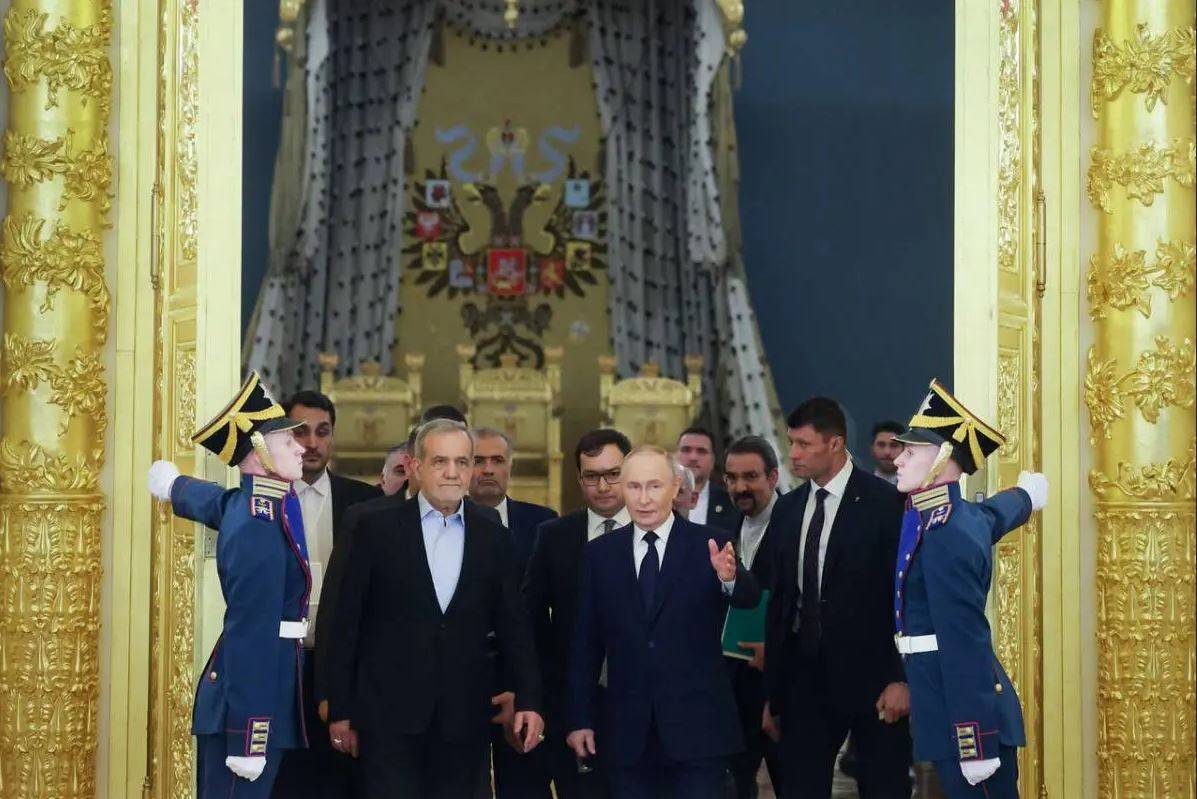1313 Views
The Resilience Blueprint: What Russia Learned from Iran's 45-Year Sanctions Fight
In recent decades, and particularly over the past years, the Western bloc has sought to pressure independent nations of the world by imposing restrictive and unjust sanctions. The world remembers that throughout years of overt hostility from the United States towards the independent system of the Islamic Republic of Iran, Western leaders have never ceased using force and unfair pressure against Iran, subsequently expanding the scope of sanctions under various pretexts.
Now, after years of sanctions on Iran and the redefinition of using restrictions in international politics—coinciding with the start of Moscow's military operation in Ukraine to defend its positions and counter the greed of the West and NATO—a long list of various restrictions and sanctions were imposed on Russia and its leaders. These sanctions progressed to such an extent that, after a short period, Russia became the country with the most imposed sanctions. These sanctions quickly grew to over 20,000 different restrictions targeting Russian individuals, entities, and organizations, or those connected to Russia. Although the methods applied by Tehran and Moscow to confront the Western sanctions had some similarities, they also included some differences.
The sanctions and pressures resulting from Western hegemony and American arrogant disposition in dealing with the natural rights of nations have created different economic challenges and conditions for Tehran and Moscow. Although both countries primarily turned these sanctions into opportunities to strengthen national production and self-sufficiency, expand economic relations within the framework of Eastern-oriented projects, and diversify exports and ties with other countries, they also encountered challenges. It is worth remembering that the nature of the sanctions against Iran and Russia was different from the start. Alongside the 4-year duration of extensive sanctions on Russia versus the 45-year comprehensive sanctions on Iran, the stated goal of imposing unilateral economic pressure on Iran was to bring it to its knees, paralyze its economy, and remove it from the global oil market. In contrast, regarding Russia, especially after the Ukraine conflict, the goal and nature of the sanctions were to significantly reduce Moscow's oil revenues through restrictions without creating a shock or blow to international energy markets, using the tool of a price cap.
It is now necessary to mention that, according to many experts, the origin of Iran's sanctions was essentially its peaceful nuclear program and its independent regional policies. In contrast, they assessed the origin of Russia's sanctions to be the war in Ukraine and confrontation with NATO. On another front, although the scope and intensity of the sanctions on Russia have been more extended and faster, Iran's sanctions have been longer-lasting and more attritional. It is worth knowing that Russia's 3-year experience in facing extensive sanctions, compared to Iran's nearly half-century of comprehensive sanctions, proves the historical resilience of the Iranian nation and government. Consequently, Iran's long experience in countering sanctions, while preserving national dignity, has created a suitable and implementable model for other sanctioned countries.
In both Iran and Russia, through methods of controlling and changing regional and international economic interactions, supporting domestic production, expanding active diplomacy, supporting vulnerable groups, and managing public opinion within the framework of financial resilience, restrictions have conversely led to economic flourishing.
Alongside the economic resilience created in both countries, we also witness damage. Although Russia, due to the size of its economy, has not experienced a recession and inflation similar to Iran's, contrary to the years 2022 and 2023, it has seen a reduction in its predicted economic growth, which reached 1.2 percent in the first half of 2025. However, by relying on its industrial self-sufficiency, it has formed a successful model of a resistance economy. But in practice, both countries have employed various methods of confrontation and diverse strategies aimed at reducing the effects of sanctions.
Tehran and Moscow have successfully circumvented sanctions through the informal sale of oil and energy products by developing relations with the East and their neighbors, using non-dollar currencies, and utilizing alternative financial channels and active economic diplomacy. These methods explain why the Western strategy of imposing sanctions in the current international system is no longer as effective as it was before. With the increase in countries under American sanctions, we are witnessing an informal synergy among these nations with more flexible resistance against these actions and pressures that ultimately led to the facilitation of the circumvention of sanctions and rendering them ineffective. Experts believe that Iran, Russia, or even Venezuela’s sharing experiences of resistance and their methods of countering sanctions, has led to the creation of an international "anti-sanctions" coalition for common resistance against Western pressure.
Apart from this, we must understand that many countries, for various reasons such as national interests or economic benefits, are not willing to follow the increasing actions and sanctions of the United States, and this in itself will be very effective in facilitating the circumvention of sanctions.
Translated by Ashraf Hemmati from the original Persian article written by Navid Daneshvar
https://www.reuters.com/world/russia-readies-decades-under-western-sanctions-2024-08-16/
https://tass.com/politics/1822723
https://www.cfr.org/in-brief/three-years-war-ukraine-are-sanctions-against-russia-making-difference
https://www.theguardian.com/commentisfree/2025/sep/29/russia-putin-usa-cold-war-nato-drones-fighters
https://risstudies.org/آسیبشناسی-پیامدهای-راهبردی-تحریم/
https://www.statista.com/statistics/1009056/gdp-growth-rate-russia/
https://english.aawsat.com/business/5198822-saudi-municipalities-minister-visits-south-korea-boost-cooperation-smart-cities

Comment
Post a comment for this article